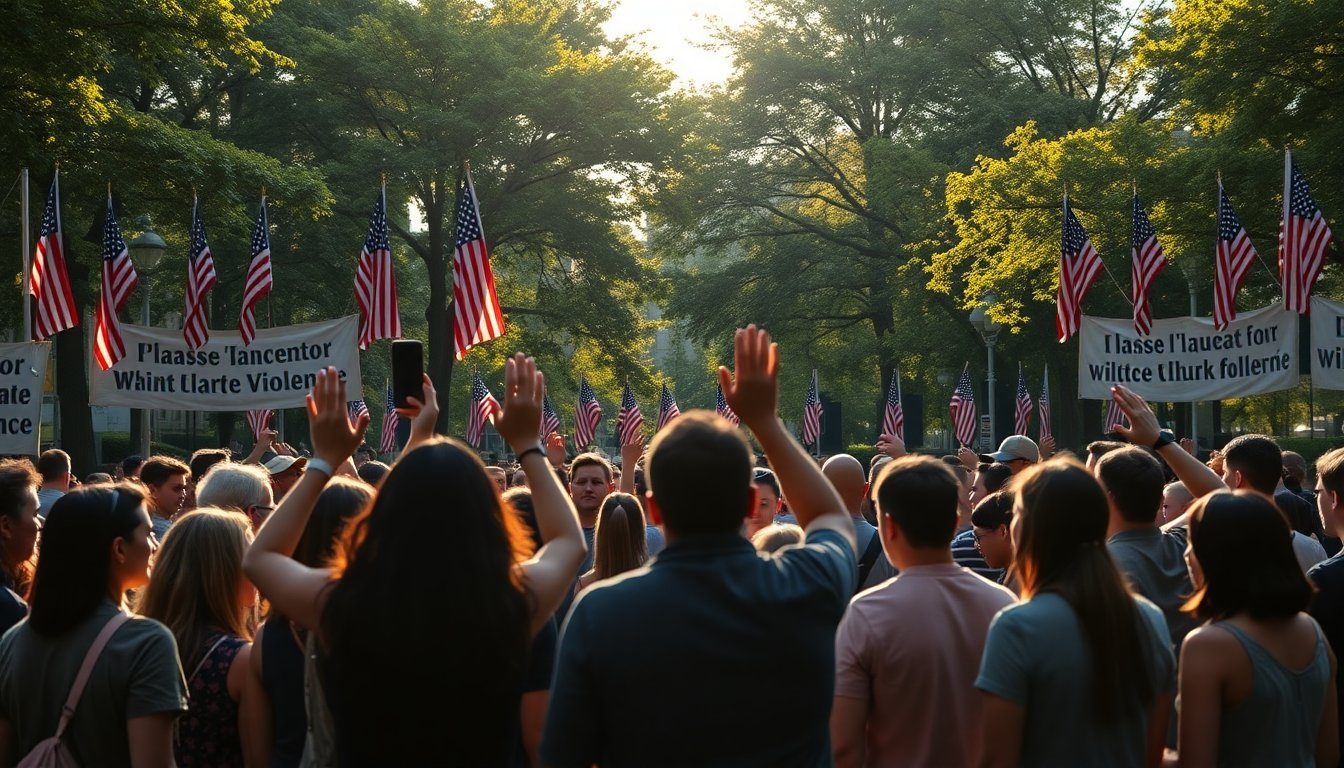Table of Contents
The assassination of Charlie Kirk, a prominent conservative activist and co-founder of Turning Point USA, has sent shockwaves through the political landscape. Known for his unwavering commitment to conservative values and free speech, Kirk’s untimely death on September 10, 2025, at Utah Valley University, has sparked a nationwide debate about the increasing threats of political violence. In response, numerous Republican lawmakers have united to condemn this act and honor his legacy.
Political Response to the Tragedy
Following Kirk’s assassination, Florida Representative Cory Mills spearheaded a resolution that has received support from 52 Republican House members. This resolution condemns the brutal act of violence while paying tribute to Kirk’s contributions to the conservative movement. Mills expressed profound sadness over the loss, describing Kirk as a “fearless voice” who championed conservative ideals and connected uniquely with America’s youth.
The resolution, titled “Honoring Charlie Kirk following his assassination on September 10, 2025, in Orem, Utah,” serves a dual purpose: it condemns the horrific shooting and affirms the importance of the First Amendment and the right to peaceful assembly. Mills emphasized that this tragic event should remind Americans of the need to protect the rights to express their views without fear of violence or intimidation.
As the investigation unfolds, President Donald Trump announced that a suspect in Kirk’s assassination has been apprehended, raising hopes for justice in this heart-wrenching case. The President expressed confidence in the investigation, revealing that the suspect was turned in by someone close to Kirk, suggesting a complex web of relationships that ultimately led to this tragic event.
Charlie Kirk’s Impact and Legacy
At just 31 years old, Charlie Kirk was not only a vocal advocate for conservative principles but also a significant figure in mobilizing young voters. His work with Turning Point USA focused on empowering the next generation to engage in political discourse and advocate for conservative values on college campuses. Kirk leaves behind a legacy of inspiration and activism that resonated deeply, particularly among young conservatives.
His assassination has prompted vigils across the country, with many reflecting on his contributions and the impact he had on the conservative movement. Mills noted that Kirk’s understanding of America’s youth was unparalleled, as he worked tirelessly to inspire and mobilize them for a brighter future. This tragic loss has ignited discussions about the importance of continuing Kirk’s mission and ensuring that the voices of young conservatives are heard.
The resolution co-sponsored by Mills also acknowledges the bravery of those who responded to the incident, including security personnel and first responders, who acted swiftly amid chaos. Their efforts exemplify a dedication to protecting individuals engaged in political activities, a crucial aspect of maintaining a democratic society.
A Call to Action Against Political Violence
The resolution outlines key points that resonate with the broader public sentiment: a condemnation of political violence, heartfelt condolences to Kirk’s family, and a reaffirmation of the rights enshrined in the First Amendment. It calls for unity among all Americans to stand firm against the intimidation and threats that increasingly characterize the political landscape.
As the nation grapples with the implications of Kirk’s assassination, it is imperative for political leaders and citizens alike to advocate for a culture of dialogue rather than violence. The commitment to uphold principles of democracy and the right to peacefully assemble must remain at the forefront of political discourse. Mills concluded by emphasizing that Kirk’s legacy will endure, and the fight for the principles he cherished must continue unabated.
As investigations proceed and the nation mourns, it is clear that Charlie Kirk’s life and work will not be forgotten. His assassination serves as a tragic reminder of the need for a united front against political violence and a reaffirmation of the values that underpin American democracy.


